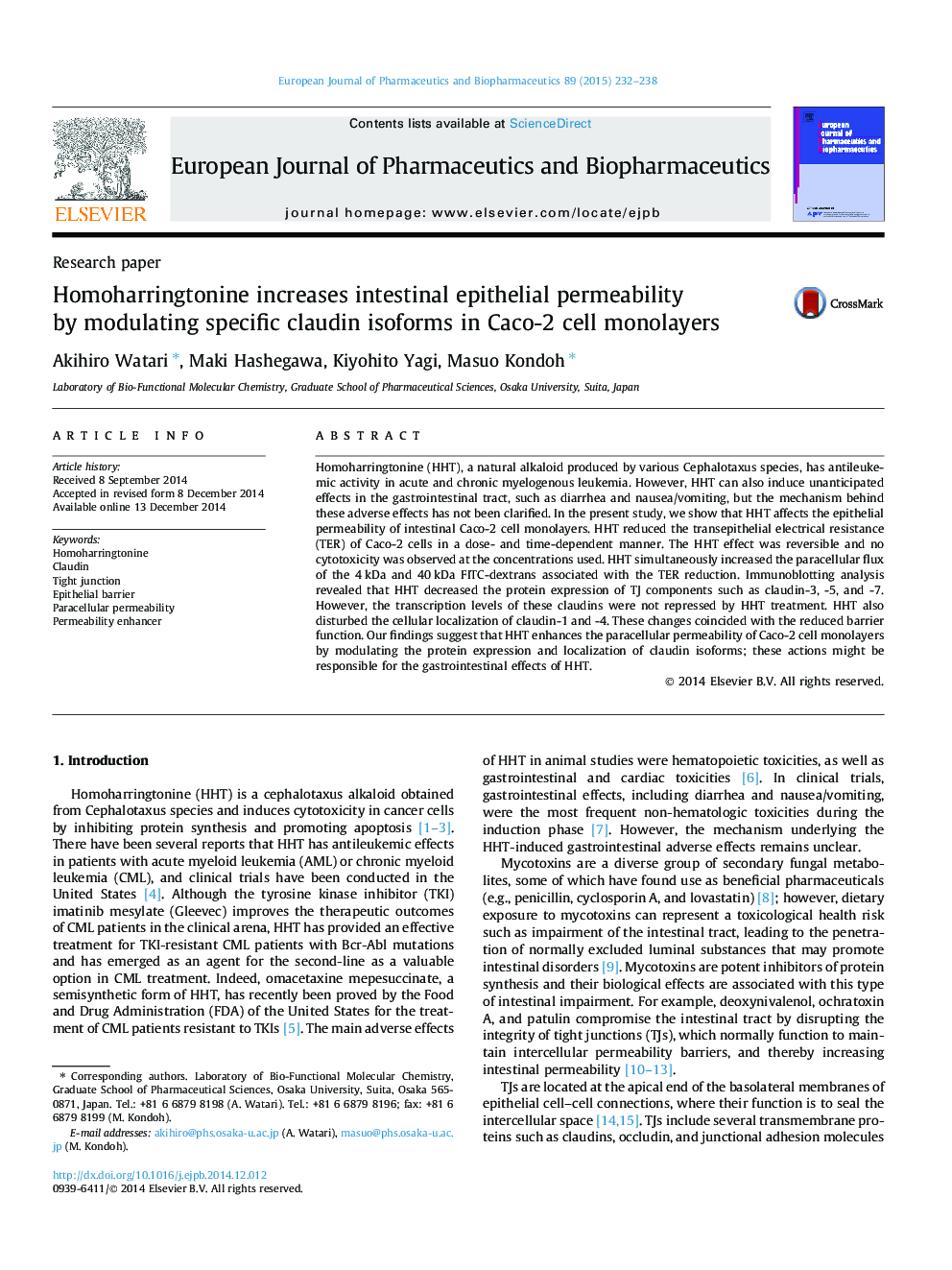| Article ID | Journal | Published Year | Pages | File Type |
|---|---|---|---|---|
| 2083444 | European Journal of Pharmaceutics and Biopharmaceutics | 2015 | 7 Pages |
•Homoharringtonine (HHT) reduced tight junction (TJ)-barrier of Caco-2 cells.•HHT decreased the protein expression of claudin-3, -5, and -7.•HHT disturbed the cellular localization of claudin-1 and -4.•Effects of HHT on TI-barrier and claudin isoforms were reversible.
Homoharringtonine (HHT), a natural alkaloid produced by various Cephalotaxus species, has antileukemic activity in acute and chronic myelogenous leukemia. However, HHT can also induce unanticipated effects in the gastrointestinal tract, such as diarrhea and nausea/vomiting, but the mechanism behind these adverse effects has not been clarified. In the present study, we show that HHT affects the epithelial permeability of intestinal Caco-2 cell monolayers. HHT reduced the transepithelial electrical resistance (TER) of Caco-2 cells in a dose- and time-dependent manner. The HHT effect was reversible and no cytotoxicity was observed at the concentrations used. HHT simultaneously increased the paracellular flux of the 4 kDa and 40 kDa FITC-dextrans associated with the TER reduction. Immunoblotting analysis revealed that HHT decreased the protein expression of TJ components such as claudin-3, -5, and -7. However, the transcription levels of these claudins were not repressed by HHT treatment. HHT also disturbed the cellular localization of claudin-1 and -4. These changes coincided with the reduced barrier function. Our findings suggest that HHT enhances the paracellular permeability of Caco-2 cell monolayers by modulating the protein expression and localization of claudin isoforms; these actions might be responsible for the gastrointestinal effects of HHT.
Graphical abstractFigure optionsDownload full-size imageDownload high-quality image (102 K)Download as PowerPoint slide
